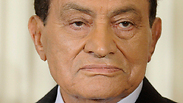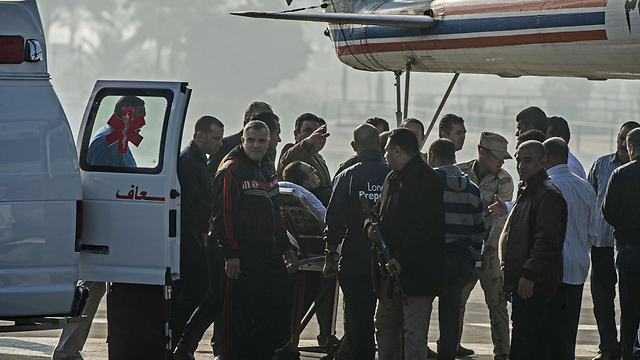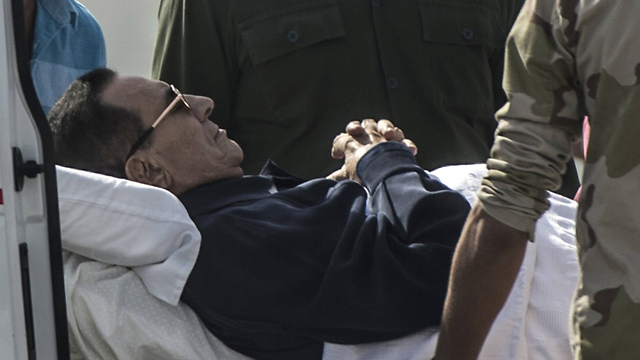
Judge drops case against Mubarak on protesters' killing
Former Egyptian president was accused of involvement in the killing of hundreds of demonstrators during the 2011 revolt that ended his three-decade rule; Mubarak's sons were cleared of corruption charges.
An Egyptian court on Saturday dropped its case against ousted President Hosni Mubarak, his interior minister Habib el-Adly and six aides on charges of ordering the killing of protesters during the 2011 revolt that removed him from power.
The court also cleared Mubarak and a former oil minister of graft charges related to gas exports to Israel.
In a separate corruption case, charges were dropped against Mubarak and his sons Alaa and Gamal, with Judge Mahmoud Kamel al-Rashidi saying too much time had elapsed since the alleged crime took place for the court to rule on the matter.
The 86-year-old former leader will not walk free after Saturday's verdicts, however. He was found guilty in May in another case related to theft of public funds and has been serving that three-year sentence while under house arrest for medical reasons in an army hospital in an upscale Cairo suburb.
The state prosecutor will be able to appeal the decision in 60 days.
The ruling was met with clapping and jubilation, as Mubarak's supporters crowded around him in court and his son Alaa kissed his father's forehead. Outside the court, pro-Mubarak protesters celebrated as well.
Ahead of the ruling at the retrial, security was beefed up around the court at the sprawling police academy on the outskirts of Cairo, with 5,000 police deployed, the official MENA news agency reported, citing a senior official.
An appeals court overturned an initial life sentence for Mubarak in 2012 on a technicality.
The new verdict was initially scheduled for September 27, but chief judge Mahmud Kamel al-Rashidi postponed it, saying he had not finished writing the reasoning after a retrial that saw thousands of case files presented.
Saturday's verdict comes as the revolutionary fervor that unseated Mubarak has largely ebbed across the country.
Mubarak's Islamist successor Mohamed Morsi was himself removed last year by then-army chief Abdel Fattah al-Sisi, who is now president, and put on trial along with hundreds of other Islamists.
Morsi and several top leaders of his Muslim Brotherhood movement are accused of committing acts of violence during the anti-Mubarak uprising as well as during huge anti-Morsi protests which prompted the army to remove him.
Crackdown
Several top left-leaning youth activists who led the campaign against Mubarak have also been jailed by the authorities for staging unauthorised protests after the June 2013 overthrow of the divisive Morsi.
Sisi, who won a presidential election in May after crushing his Islamist opponents, has made law and order and economic stability his top priorities rather than democratic freedoms - the key demand during the anti-Mubarak uprising.
The police force, which Mubarak is accused of ordering to quell the 2011 uprising, is now feted in the largely pro-government media as it wages a deadly crackdown on pro-Morsi Islamist protesters and militants.
At least 1,400 people have been killed in the crackdown, with scores of soldiers and policemen dying in militant attacks.
Mubarak, who attended the trial hearings in an upright stretcher wearing his trademark shades, told the retrial in August that he was nearing the end of his life "with a good conscience".
"The Hosni Mubarak before you would never have ordered the killings of protesters," he said.
Mubarak's former interior minister Adly accused the Muslim Brotherhood and Palestinian militants of attacking protesters during the 2011 uprising to malign the police.
During the retrial which opened in May 2013, most witnesses - senior military and police officers under Mubarak - have given testimony seen as favourable to the former leader.
Roi Kais, AFP and Reuters contributed to this report.













